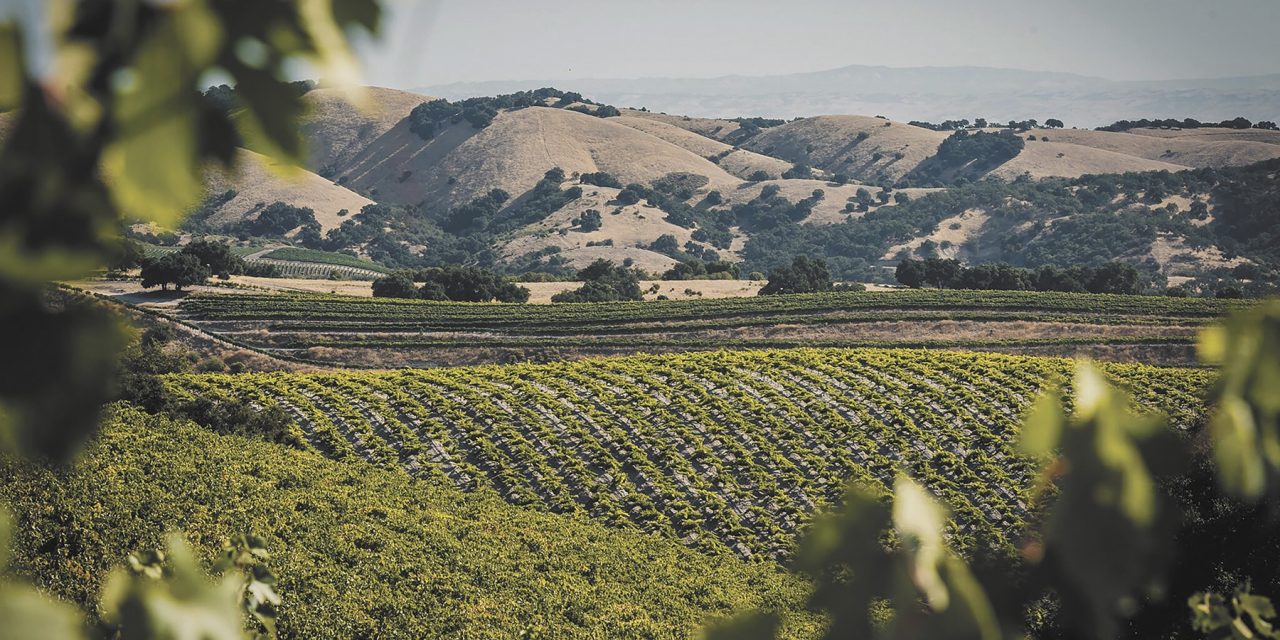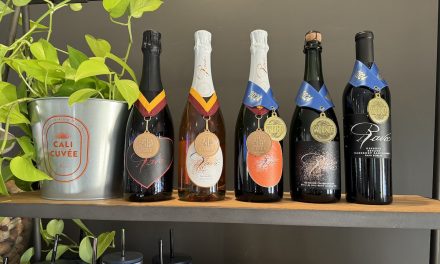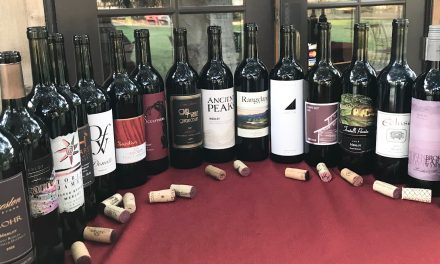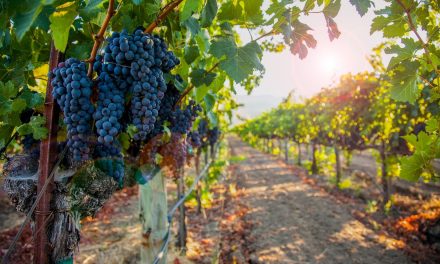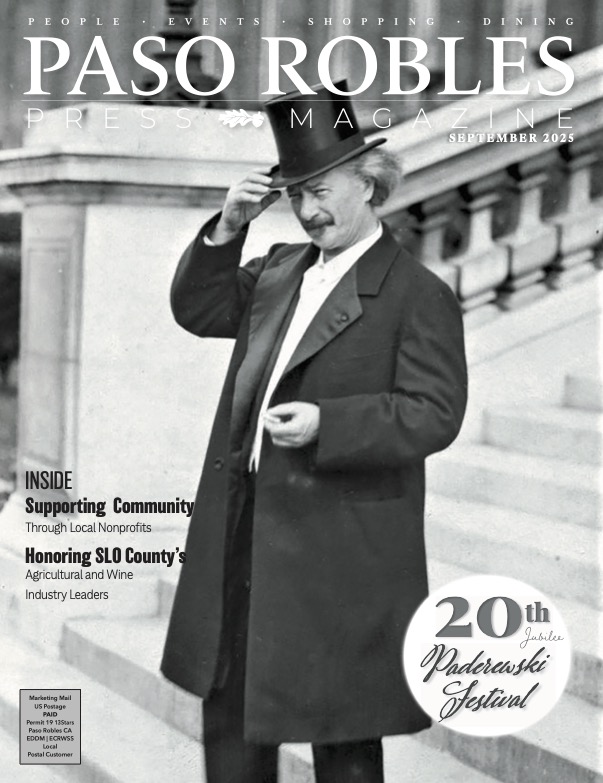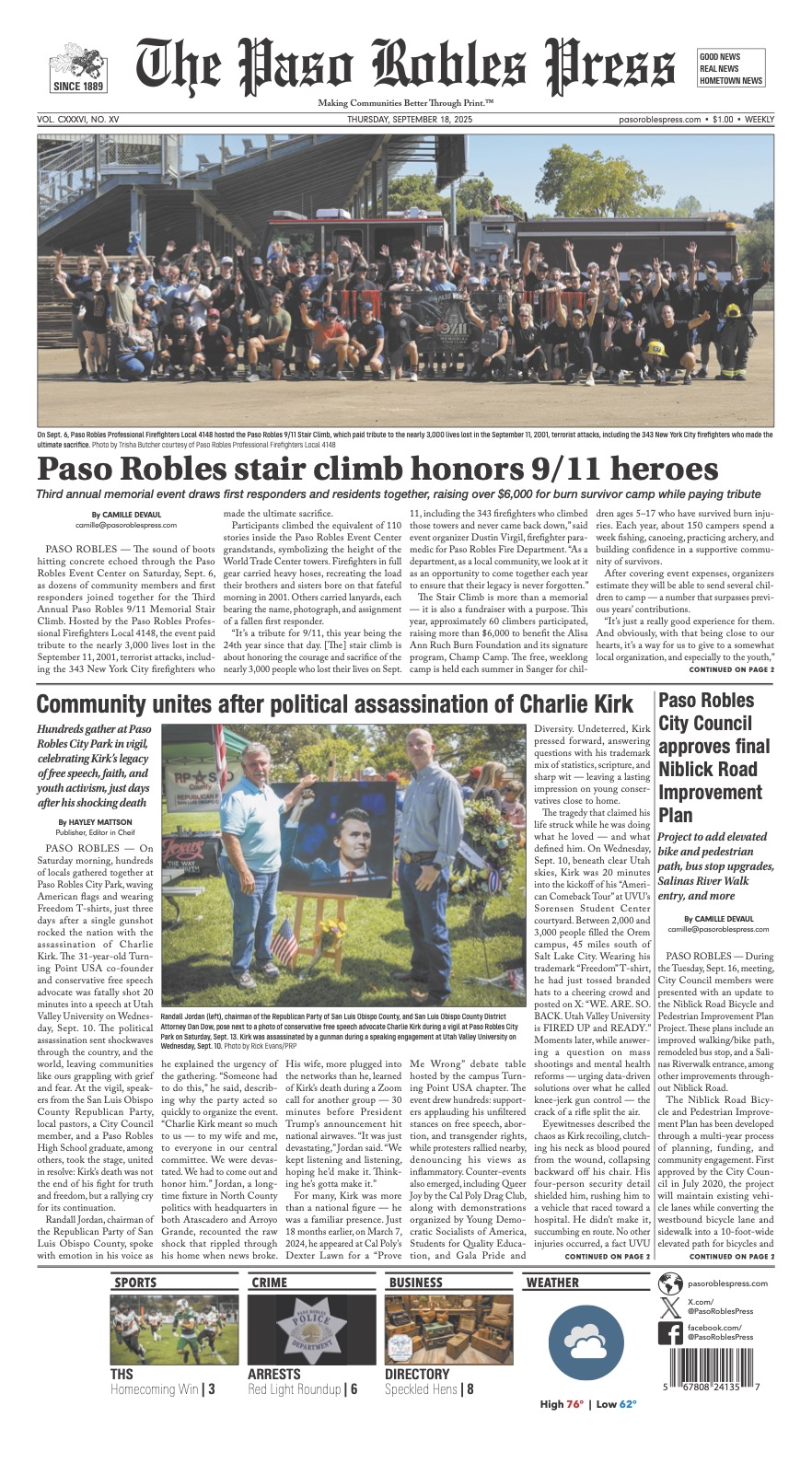Americans are adjusting to a new normal in the midst of the global pandemic. With physical distancing and closures of schools and businesses, communities are carving out an alternative slow-paced lifestyle.
Here in Paso, where wine production plays a starring role, Covid-19 has impacted the industry like all other businesses. The absence of wine tourism has squeezed hotels, restaurants and other support industries.

“It’s been a pretty dramatic change for our member wineries,” commented Joel Peterson, executive director of Paso Robles Wine Country Alliance (PRWCA). “Luckily our wineries are quite nimble and got creative and started doing virtual tastings, online sales and specials to show the Paso wine experience. But it’s still a challenge as many small wineries operate as Direct to Consumer (DTC) and wines are sold through their tasting rooms.”
To counteract this impact, PRWCA modulated Home with Paso Wine on pasowine.com, a program populated with virtual tastings and special offers from wineries plus a Zoom Hangout that features three local winemakers every Friday at 3 p.m.
In the near future, “we may be looking at social distancing tasting where there’s proper spacing and sanitation methods and reservation only tastings,” Peterson added.
There have been layoffs industry wide, Peterson noted, especially with part-time tasting room workforce at larger wineries. Typically small wineries operated by a single owner or couple manage to run the tasting rooms themselves.
Diablo Paso Winery’s Enrique and Nora Torres are such owners. Enrique, who is fortunate to maintain his full-time job as assistant winemaker at CaliPaso Winery, is currently open for pick-ups only at his downtown tasting room. Diablo Paso’s solid wine club membership has made up for some of the loss from walk-in business.
“[Our members] are very supportive and ordering more than their commitment,” commented Enrique. “We will survive; we can pay the rent.”
Copia Vineyards, another small business owned by Varinder and Anita Sahi, recently opened a downtown tasting room with a small staff.
“We are working hard to pay our hospitality manager and vineyard manager,” said Anita. The one part-time member will be brought back once the tasting room is opened.
Dave McGee, owner of Monochrome Wines in Tin City, has operated his tasting room without a staff. By launching his virtual tasting for a strong wine club membership and offering free shipping, McGee has seen a rise in his orders.
“People didn’t drop their membership due to financial difficulties,” said McGee. However, sales are down by 10 percent due to tasting room closure.
Wineries with good mailing/membership list are seeing increased online sales, noted winemaker Stewart McLennan. “If you had that built up, you have a bit of a cushion.” McLennan, who recently opened his tasting room Sharpei Moon in Templeton, noted that he had his best weekend just one week before the lockdown.
Tablas Creek Vineyard, Eberle Winery and Daou Vineyards & Winery are among the mid-size to large wineries maintaining full-time staff on payroll with some assistance for part-time workers.
“We have not laid off anybody,” said Daniel Daou, winemaker and co-proprietor of Daou Vineyards & Winery. “Our goal is to make sure we bite the bullet as long as we can so nobody gets laid off. Tasting room staff is involved in tele-sales, assisting in wine pick-ups and even helping out in vineyards and with bottling.”
Daou’s hospitality center (open daily for pick-ups only) is quiet and its strong presence in restaurants is down but the DTC, wine club membership and wholesale business is strong.
“The only thing that’s saving us and other Paso wineries that I know of is wholesale and that biz is doing great.” The small wineries without a wholesale presence are at risk he feels. “If this drags on another two to three months, you’re going to get hurt.”
Paso prides itself in small family-owned wineries crafting limited production of different varietal wines and experimental blends that don’t fit the wholesale business model, which tends to target the popular cabernet sauvignon and chardonnay wines.
“Everybody who works for Eberle is receiving their full pay check, plus medical, dental and optical,” said Eberle Winery founder Gary Eberle, seated at his spot in front of the winery. “It’s good for business and I do miss the interaction [in the tasting room].”
Nevertheless, Eberle is happy to see customers load wine cases in the driveway. “Last year April was huge and this year we are three days away from exceeding that,” he said.
Jason Haas, general manager and partner at Tablas Creek, said his full-timers are on payroll with people shifted around in departments. The part-time tasting room workforce was given an advance month’s salary and the company is helping them apply for unemployment and other benefits.
While tasting room and restaurants sales are impacted, as is the wholesale business which is down by 60 percent, the wine club membership has made up for this loss. “That’s been our lifeline,’ said Haas.
With wine sales down in this economy, how is that going to affect the industry, I ask?
“It’s inevitable that there will be extra inventory by year’s end,” said Haas “I know we will. It will have a trickle down effect on growers who are already struggling.”
Mindy Allen, owner of Custom Vineyard Application and Martinez Farming, whose clientele ranges from small wineries to large growers, voiced the same concern. With sluggish sales and stuck inventory, small wineries doing DTC business may not fulfill their contracts with large growers for the 2020 harvest.
“It all comes down to the grower who’s invested in his vineyard and depends on these contracts,” she worries.
While most winemakers are focused on sales, Neeta Mittal, co-owner of LXV Wine, has a different take. “It’s time to look how the industry will change once the crisis is over,” she insisted. “The number of visitors won’t change. What will change is people in the comfort of their home doing virtual tasting.”
That, she thinks, may be the new normal.

